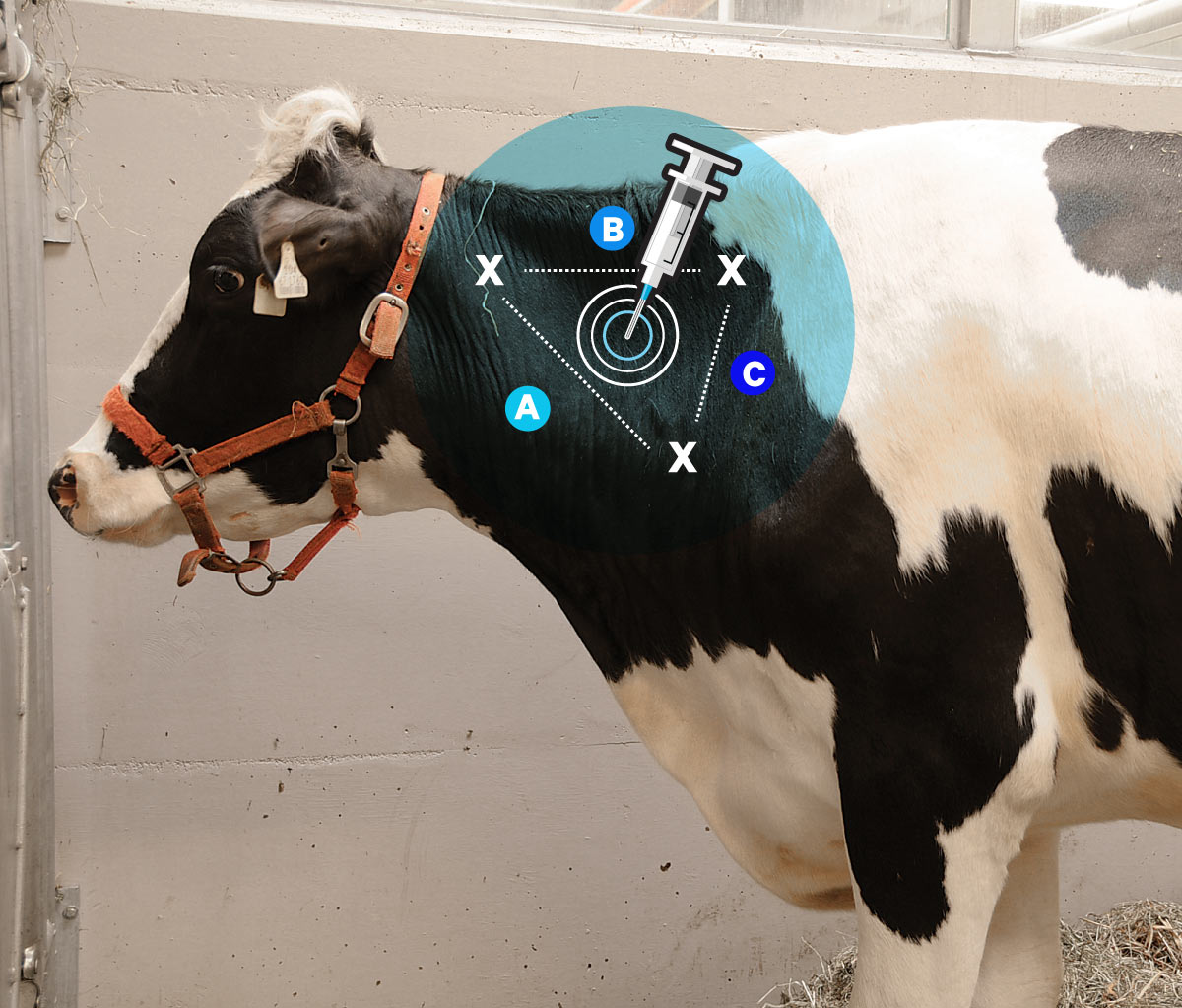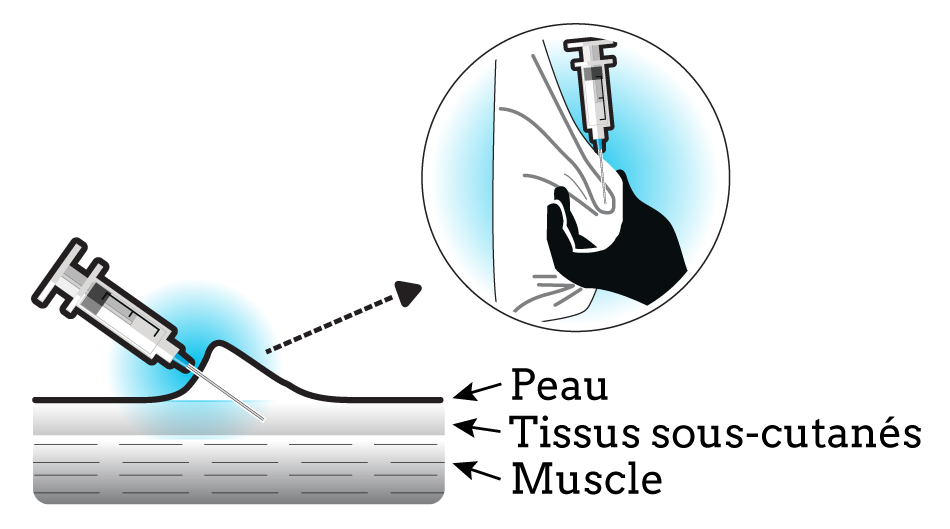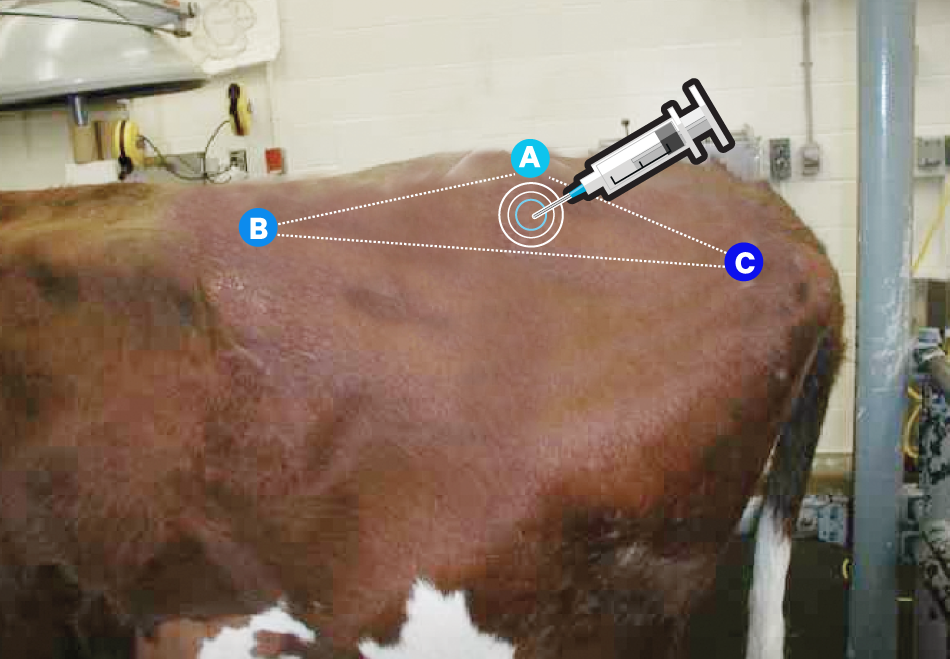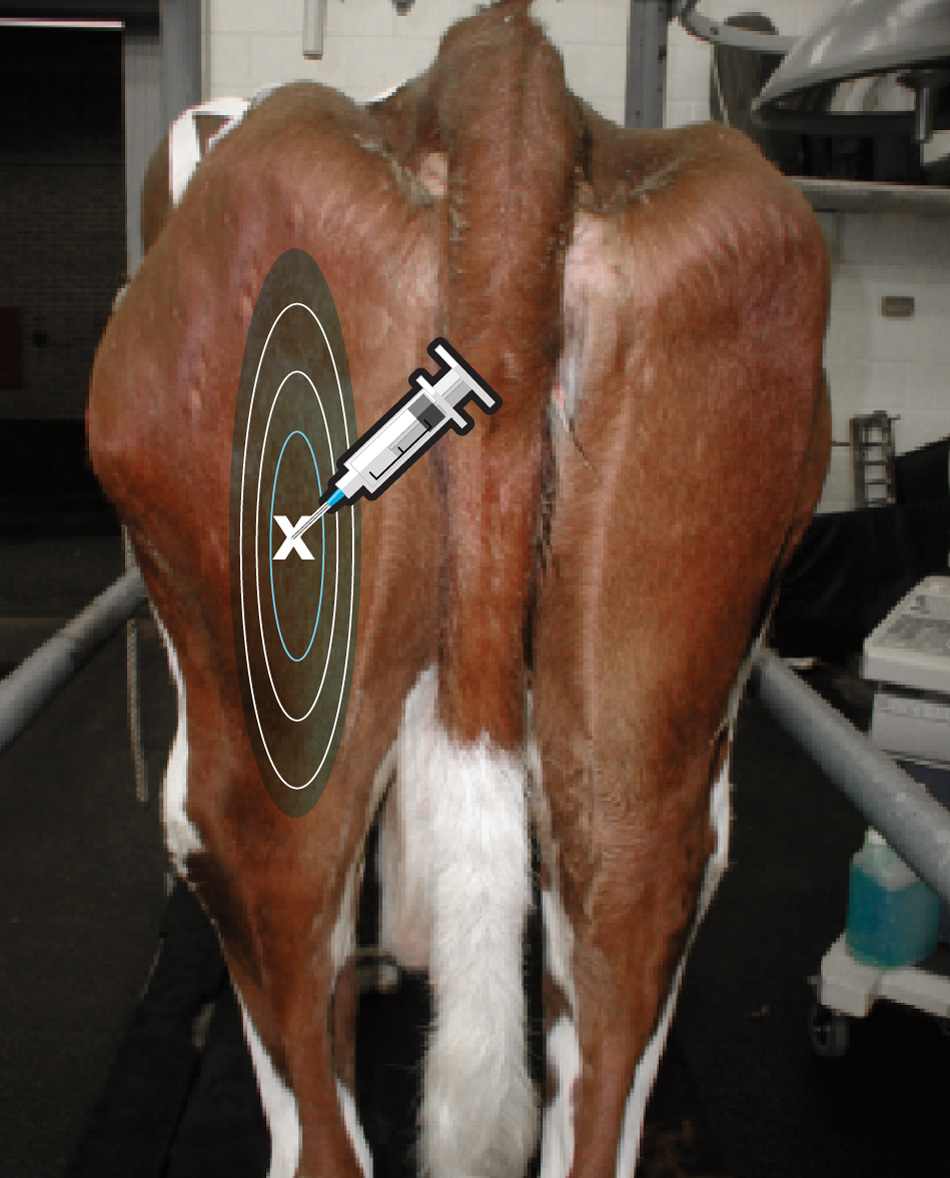
Source: The Mastitis Network
Prior to administering an injection, make sure of the following:
- Consult a veterinarian about the proper use of medication.
- When indicated in label directions, administer medication subcutaneously.
- Restrain the animal properly.
- Avoid injecting in the rump or thigh.
- Do not inject through dirty skin.
- Select the correct needle gauge for the viscosity of the product injected.
- Inject a small volume per site: no more than 10 to 15 ml (follow label directions)
- Use a new needle for each treatment.
- Never use a needle that is bent, worn or contaminated.
- Always discard used needles and syringes in a container designed for that use.
- Clearly identify treated animals to prevent shipping milk. RECORD THE DATE OF THE TREATMENT AS WELL AS THE WITHDRAWAL
PERIOD FOR MILK AND MEAT IN A PERMANENT LOG.
In case of a broken needle:
Have it removed by a veterinarian. Record in a permanent log the ID of any animal carrying a broken needle that have not be retrieved and the location of the needle. In addition, mark this site on the animal. Inform the packing plant or the next buyer of the situation.
INTRAMUSCULAR – IM
All intramuscular injections must be administered in the neck muscle. Inject in the center of the illustrated triangle area bounded by the spine (A), the ligament of the neck (B) and shoulder line (C).

![]()
Use a 16 to 20 gauge needle, 2.5 to 4 cm long (1 to 1.5 inches).

SUBCUTANEOUS – SC
In order to minimize carcass damage, insert the needle in a skin fold of the neck, forward of the shoulder.

![]()
Use a 16 to 20 gauge needle, 2.5 cm long (1 inch).

It may be impossible to inject an animal in the neck area under the following circumstances:
- the animal cannot properly restrained.
- the safety of the person attempting to administer the injection will be compromised.
In such cases, it is recommended to use the following alternate sites:
1. The muscle area behind the thigh
(semitendinosus / semimembranosus)
- Inject a small volume per site: no more than 10 to 15 ml (follow label directions).
- Repeated injections in this area may cause inflammation and pain.

2. The rump
(as a last resort only)
In the area delineated by the sacrum (A), the wing of the ilium (B) and the ischium (C).







